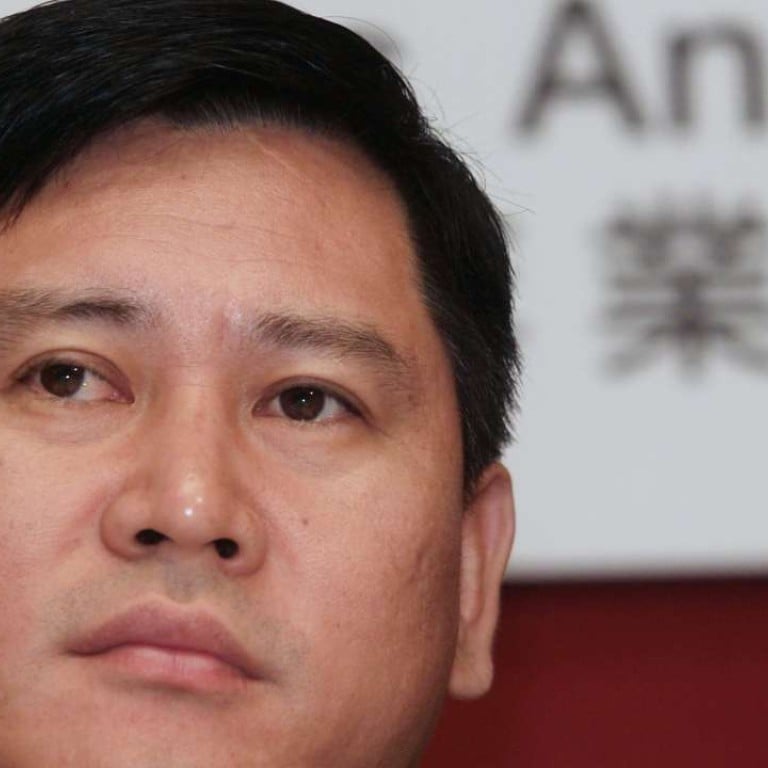
China’s ENN plans surge in LNG purchases, online trading platform to increase market share
ENN plans to increase its liquefied natural gas purchases by over 60 per cent this year and has launched an online trading platform to improve transparency and distribution of the fuel industry-wide.
ENN Energy, one of China’s largest piped natural gas distributors, aims to grow its sales of liquefied natural gas (LNG) this year by over 60 per cent and has established an online trading platform as part of its long-term strategy to make the market more efficient and expand its presence in the industry.
The Langfang, Hebei province-based firm is seeking to sell over 2 billion cubic metres (bcm) of LNG — a chilled and compressed form of gas transported by vessels or trucks to markets — in 2016, up at least 63 per cent from 1.23 bcm achieved last year, a figure that exceeded a company target of 1 bcm.
“We want to gain market share to boost our influence in the market,” vice chairman Cheung Yip-sang said in an interview. “We want to become the Alibaba of the LNG industry so that volume and sources of demand and supply become more transparent and they can be matched up easier.”
Alibaba Group is a Chinese e-commerce juggernaut that sold 3 trillion yuan of goods through its online shopping platforms ahead of the fiscal year ending March.
ENN, controlled by mainland tycoon Wang Yusuo, has set up an online gas trading platform to link up gas sellers and buyers to help solve a problem of insufficient information flow about supply and demand that has led to logistics costs being higher than necessary, Cheung said.
He conceded the move will lower gas prices and distribution costs for all participants and cut ENN’s own distribution margins. Still the strategy would help the company build its brand and market clout to generate profit in other non-gas businesses once its users find it “too difficult” to leave its online platform, Cheung said.
ENN currently has a 19 per cent share of mainland China’s 10 million-tonne-a-year LNG retail market and has built up sufficient transportation capacity to handle most distribution needs of the big three state-backed oil and gas giants, PetroChina, China Petrochemical Corp and China National Offshore Oil Corp.
Spot-market imported LNG has traded at a discount to benchmark Chinese city-gate wholesale prices, yet still capacity utilisation of China’s coastal LNG import terminals averaged only 39 per cent last year, Cheung said.
“This reflects the fact that the big three have signed excessive long-term contract gas-import volumes at expensive prices and they have refused to sell at lower wholesale prices and let its distributor rivals use its import terminals to avoid losing market share to other firms that want to import cheap LNG,” he said. “But given they cannot cancel the contracts, they can only mix some cheap spot-market gas with the expensive gas they have committed to buy.”
Cheung said the big three’s grip has already been weakened by an order from Beijing last year for the state-backed majors to sell some of their excess gas on the Shanghai Petroleum and Natural Gas Exchange to increase transparency. That’s a part of reforms to let market forces play a bigger role in energy price determination.
ENN bought just over 1 bilion cubic metre (bcm) of gas through the exchange last year, compared with its total gas sales of 11.3 bcm last year. The average price of such purchases is 8 per cent below the city-gate benchmark prices set by Beijing.
ENN’s total gas sales volume has risen 15 per cent year-on-year in the first two months of this year on the back of an average 28 per cent cut in non-residential gas wholesale price charged by producers on November 20. It has targeted full-year growth of 15 per cent.
Still, Cheung said with an oil price at around US$40 a barrel and current low spot-market prices of imported LNG, there is room for the current 1.81 yuan per cubic metre wholesale price at city gates to fall by 0.3 to 0.5 yuan to restore gas’ competitiveness to a level before oil prices slumped in mid-2014.
ENN’s share price Friday jumped 5.6 per cent to HK$41.55, a three-month high, after management told analysts its target is for recurring profit to rise over 16 per cent this year.
The rally was also helped by news that Shanghai-listed ENN Ecological Holdings, a subsidiary of ENN Energy’s unlisted parent ENN Group, has agreed to buy an 11.7 per cent stake in Australian oil and gas producer Santos for US$750 million and become Santos’ largest single shareholder. This could broaden ENN Energy’s access to more gas sources.
Alibaba Investment entered into an agreement in December with SCMP Group to buy the group’s media assets, including the South China Morning Post, for a cash consideration of HK$2.06 billion.

